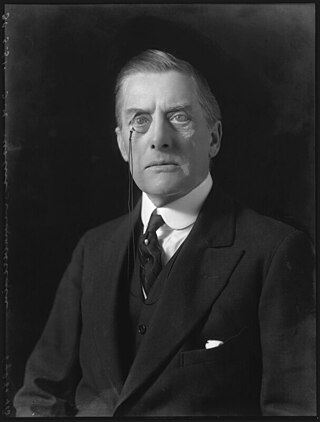
Sir Joseph Austen Chamberlain was a British statesman,son of Joseph Chamberlain and older half-brother of Prime Minister Neville Chamberlain. He served as a Member of Parliament (MP) for 45 years,as Chancellor of the Exchequer (twice) and was briefly Conservative Party leader before serving as Foreign Secretary.

Bradford South is a constituency in West Yorkshire represented in the House of Commons of the UK Parliament since 2015 by Judith Cummins of the Labour Party.
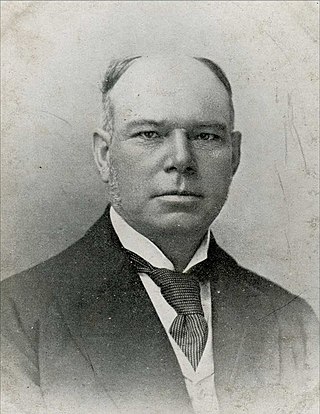
Sir Luke White was an English Liberal Party politician.
Parliamentary by-elections in the United Kingdom occur when a Member of Parliament (MP) vacates a House of Commons seat during the course of a parliament.
The Liberal Party was formally established in 1859 and existed until merging with the Social Democratic Party in 1988 to create the Liberal Democrats.

Sir Percy Alfred Harris,1st Baronet,PC was a British Liberal Party politician. He was Liberal Chief Whip and Deputy Leader of the Liberal Parliamentary Party.
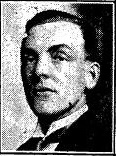
Sir James Henderson-Stewart,1st Baronet,born James Henderson Stewart,was a British banker,Army officer and politician. He was a National Liberal Member of Parliament for East Fife from 1933 until his death,and was the sessional chairman of the Parliamentary Party in 1945. He played an important role in negotiating the unity of the National Liberals with the Conservatives,but was unable to persuade the Liberal Party to join as well.
Joseph Paton Maclay,2nd Baron Maclay KBE,was a Scottish banker,shipowner,peer and Liberal politician.

John Wadsworth was a British trade unionist and Liberal or Lib-Lab politician.

Thomas Davis Fenby was a British Liberal politician and blacksmith.
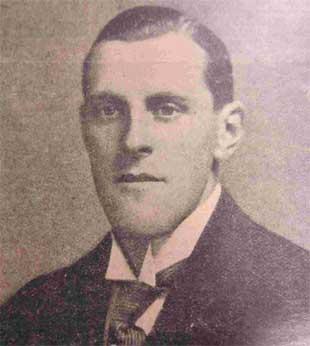
Alec Ewart Glassey was a British Liberal politician. He was Member of Parliament for East Dorset from 1929 to 1931.

Sir John Henry Morris-Jones was a Welsh doctor,soldier and Liberal,later Liberal National politician.
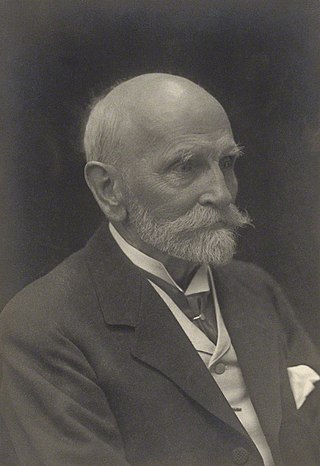
Sir William Pollard Byles was a British newspaper owner and radical Liberal politician.

Stephen Goodwin Howard CBE was a British Liberal politician.

Francis Schnadhorst was a Birmingham draper and English Liberal Party politician. He briefly held elected office on Birmingham Council,and was offered the chance to stand for Parliament in winnable seats,but he found his true metier was in political organisation and administration both in his home town as secretary of the highly successful Birmingham Liberal Association from 1867 to 1884,and nationally as secretary of the newly formed National Liberal Federation from 1877 to 1893. He was famously described as "the spectacled,sallow,sombre" Birmingham draper who within a short period of time was to establish himself through the Birmingham Liberal caucus as one of the most brilliant organisers in the country.
The National Liberal Federation (1877–1936) was the union of all English and Welsh Liberal Associations. It held an annual conference which was regarded as being representative of the opinion of the party's rank and file and was broadly the equivalent of a present-day party conference.
The Carlton Club meeting,on 19 October 1922,was a formal meeting of Members of Parliament who belonged to the Conservative Party,called to discuss whether the party should remain in government in coalition with a section of the Liberal Party under the leadership of Liberal Prime Minister David Lloyd George. The party leadership favoured continuing,but the party rebels led by Bonar Law and Stanley Baldwin argued that participation was damaging the party. The meeting voted decisively against the Coalition,which resulted in its collapse,the resignation of Austen Chamberlain as party leader,and the invitation of Law to form a Government. The Conservatives subsequently won the general election with an overall majority.
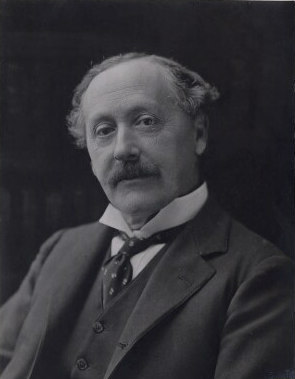
Herbert John Gladstone,1st Viscount Gladstone,was a British Liberal politician. The youngest son of William Ewart Gladstone,he was Home Secretary from 1905 to 1910 and Governor-General of the Union of South Africa from 1910 to 1914.
The National Liberal Party,known until 1948 as the Liberal National Party,was a liberal political party in the United Kingdom from 1931 to 1968. It broke away from the Liberal Party on the issue of abandoning Free trade and supporting protectionism,and later co-operated and merged with the Conservative Party.

The Social Democratic Party (SDP) was a centrist to centre-left political party in the United Kingdom. The party supported a mixed economy,electoral reform,European integration and a decentralised state while rejecting the possibility of trade unions being overly influential within the industrial sphere. The SDP officially advocated social democracy,but its actual propensity is evaluated as close to social liberalism.














